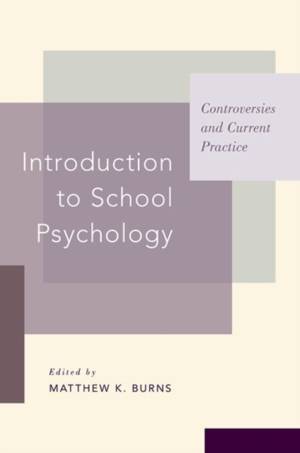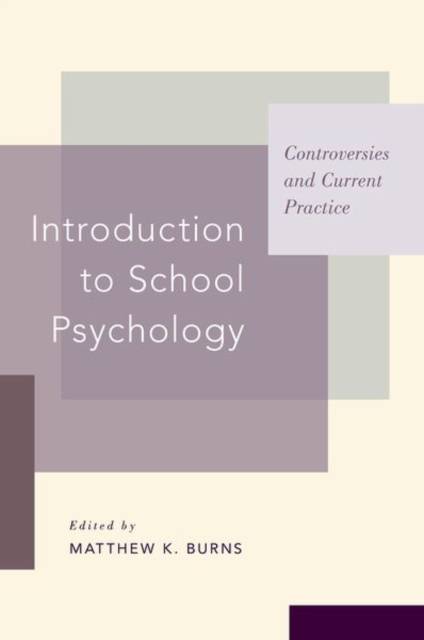
- Retrait gratuit dans votre magasin Club
- 7.000.000 titres dans notre catalogue
- Payer en toute sécurité
- Toujours un magasin près de chez vous
- Retrait gratuit dans votre magasin Club
- 7.000.0000 titres dans notre catalogue
- Payer en toute sécurité
- Toujours un magasin près de chez vous
Introduction to School Psychology
Controversies and Current Practice
Matthew K Burns
Livre broché | Anglais
92,45 €
+ 184 points
Description
The discipline of school psychology has been shaped over the course of its existence by a series of professional and scientific controversies, and by how researchers and practitioners have responded to those controversies. Should there be an entry-level degree requirement for school psychologists? What should a school psychologist's role be with regard to student mental health? Should school psychologists work outside of school settings? Designed for students entering school psychology training programs, Introduction to School Psychology: Controversies and Current Practice examines the debates that have influenced the nature and scope of the profession, and that continue to do so today. This edited textbook is divided into five sections, the first of which describes current practices. The second offers coverage of ethics and relevant legal concerns for school psychologists; cultural competence; and consultation. The third section provides readers with the theoretical foundations of practice and includes a brief chapter on theoretical orientations. The fourth and largest section of the book examines the controversies that shape practice, presenting chapters on idiographic and nomothetic approaches; diagnostic frameworks; assessment and treatment of behavioral disorders; and much more. The final section of the book focuses on contexts and the future of the profession, with chapters on practice in urban and rural
communities, technology, and the Futures Conferences.
communities, technology, and the Futures Conferences.
Spécifications
Parties prenantes
- Auteur(s) :
- Editeur:
Contenu
- Nombre de pages :
- 580
- Langue:
- Anglais
Caractéristiques
- EAN:
- 9780190619329
- Date de parution :
- 02-07-19
- Format:
- Livre broché
- Format numérique:
- Trade paperback (VS)
- Dimensions :
- 155 mm x 234 mm
- Poids :
- 816 g

Les avis
Nous publions uniquement les avis qui respectent les conditions requises. Consultez nos conditions pour les avis.






